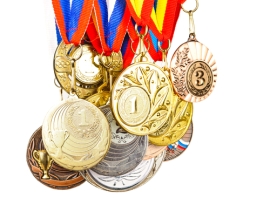
Following Mark Arbib’s resignation as the Federal Minster for Sport earlier this month, The Age published a farewell message.
The article’s four main topics were: sport’s ability to transform lives, funding of elite sport, the need for a national curriculum for sport and the ongoing challenge to uphold the integrity of sport.
In my time as Minister I made it clear that I am an unapologetic supporter of elite sport. It creates great role models and provides inspiration to Australians young and old. There is no doubt in my mind about the inseparable connection between Australians being on the podium and young Australians participating in sport.
No Minister, there is no link between performance and participation.
Arbib didn’t become Minister until September 2010, eleven months after The Independent Sport Panel (Crawford) Report was provided to his predecessor. The report questions the imbalance of funding towards Olympic sport, with 80% of funding going to Olympic sports and 90% of this amount towards high performance.
There is a demonstrated link between elite sport funding and medals (Hogan and Norton, 2000), but there is no empirical evidence to support that this success “trickles down”.
The Crawford report “can find no evidence that high profile sporting events like the Olympics (or Wimbledon or the Australian Football League (AFL) Grand Final) have a material influence on sports participation“.
As far back as the mid-70s it was suggested that “a causal connection between excellence at the top and breadth of participation cannot simply be assumed” (Coles, 1975), with further studies showing this concept is overly simplistic and too generalised to be universally successful (Payne, Reynolds, Brown, & Flemming, 2003).
Following the Sydney 2000 Olympics, there were some anecdotal findings that the event created a greater interest in sport (Gordon & Hart, 2001; Cameron, 2001). However, there was no evidence that the event had any impact on sport participation or sport clubs in Australia (Armstrong, Bauman, Ford, & Davies, 2002; Veal & Toohey, 2005).
It’s fine to be passionate about and fund elite sport, but the myth of performance passively triggering participation needs to be dispelled.
Additional:
A media release from the Australian Sports Commission on 18 March 2012, contains a quote from our new Minister for Sport, Kate Lundy:
Olympic sport inspires people to get involved in sports at a grassroots level – driving increased participation in community sport.
I’m not bashing elite sport, but we need to stop pretending this funding benefits sport at all levels.
Danya Hodgetts completed a PhD examining how major events can be leveraged to create legacies for community sport. At the release of the Crawford Report, she wrote It’s time the pyramid was turned upside down – why the Crawford Report has got it right
References
Armstrong, T. P., Bauman, A., Ford, I., & Davies, J. (2002). Effect of the Sydney Olympic Games on Physical Activity Participation Levels Among Australian Adults. Medicine & Science in Sports & Exercise, 34(5), S216.
Cameron, D. (2001). A nation that loves its Games but won’t come out to play. The Sydney Morning Herald. Sydney.
Coles, A. (1975). Report of the Australian Sports Institutes Study Group. Canberra: Department of Tourism and Recreation, AGPS.
Crawford, D. (2009). The Future of Sport in Australia [Crawford Report]. Retrieved November 18, 2009, from http://www.sportpanel.org.au/internet/sportpanel/publishing.nsf/Content/crawford-report-full.
Hogan, K., & Norton, K. (2000). The ‘price’ of Olympic gold. Journal of Science and Medicine in Sport, 3(2), 203-218.
Gordon, D., & Hart, J. (2001). The rise of the couch potatoes. The Advertiser. Adelaide.
Payne, W. R., Reynolds, M., Brown, S., & Flemming, A. (2003). Sports role models and their impact on participation in physical activity. Retrieved September 21 2009, from, http://www.sportdevelopment.org.uk/sportrolemodel2002.pdf
Veal, A. J., & Toohey, K. (2005). Sport for All & the Legacy of the Sydney 2000 Olympic Games. Third International Event Management Research Conference. Sydney.

Danya, hopefully your astute article will be read by the new Sports Minister!
I’d like to think so too, Daryl. It gave me some ideas and justification for some research, which also may not get read!